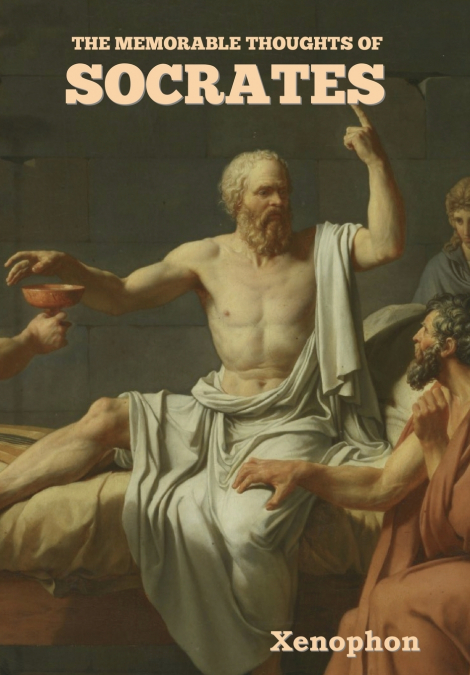
 Donde los libros
Donde los libros
 Librería 7artes
Librería 7artes
 Librería Elías (Asturias)
Librería Elías (Asturias)
 Librería Kolima (Madrid)
Librería Kolima (Madrid)
 Librería Proteo (Málaga)
Librería Proteo (Málaga)
Memorabilia (original title) is a collection of Socratic dialogues by Xenophon, a student of Socrates. The lengthiest and most famous of Xenophon’s Socratic writings, the Memorabilia is essentially an apologia (defense) of Socrates, differing from both Xenophon’s Apology of Socrates to the Jury and Plato’s Apology mainly in that the Apologies present Socrates as defending himself before the jury, whereas the former presents Xenophon’s own defense of Socrates, offering edifying examples of Socrates’ conversations and activities along with occasional commentary from Xenophon. Memorabilia is also known by its Latin title Commentarii and a variety of English translations (Recollections, Memoirs, Conversations of Socrates, etc.). Xenophon’s Socrates is more likely to give practical advice than to ask probing philosophical questions, and Xenophon is more interested in defending Socrates than in developing his philosophy. Where Plato’s Socrates emphasizes self-knowledge, Xenophon’s Socrates speaks more of self-control. Yet the Memorabilia also contains charming set-pieces (including Socrates’ conversation with the glamorous courtesan (hetaera) Theodote in III.11, and his sharp exchanges with two of the Thirty Tyrants in I.2). And Xenophon likely aimed to reach a wider range of readers, many of whom may have welcomed the more down-to-earth advice his Socrates gives. Xenophon’s portrayal of Socrates was influential in antiquity, and helps us understand how various schools of ancient thought made use of Socrates. The self-control of Xenophon’s Socrates is in keeping with his role in inspiring ancient cynicism, which was traditionally said to be founded by Socrates’ follower Antisthenes. It is clear that the Stoics made considerable use of Xenophon’s version of the argument from design, and their account of natural law also owed something to Socrates, if not only to Xenophon’s Socrates. Aside from Plato and Aristophanes, Xenophon is the only contemporary of Socrates whose writings on the latter are extant. Xenophon’s account of how Heracles had to choose between Virtue and Vice, a story he attributes to Prodicus, became a popular motif in ancient Greek and Roman culture. It became popular again in the Renaissance. (wikipedia.org)